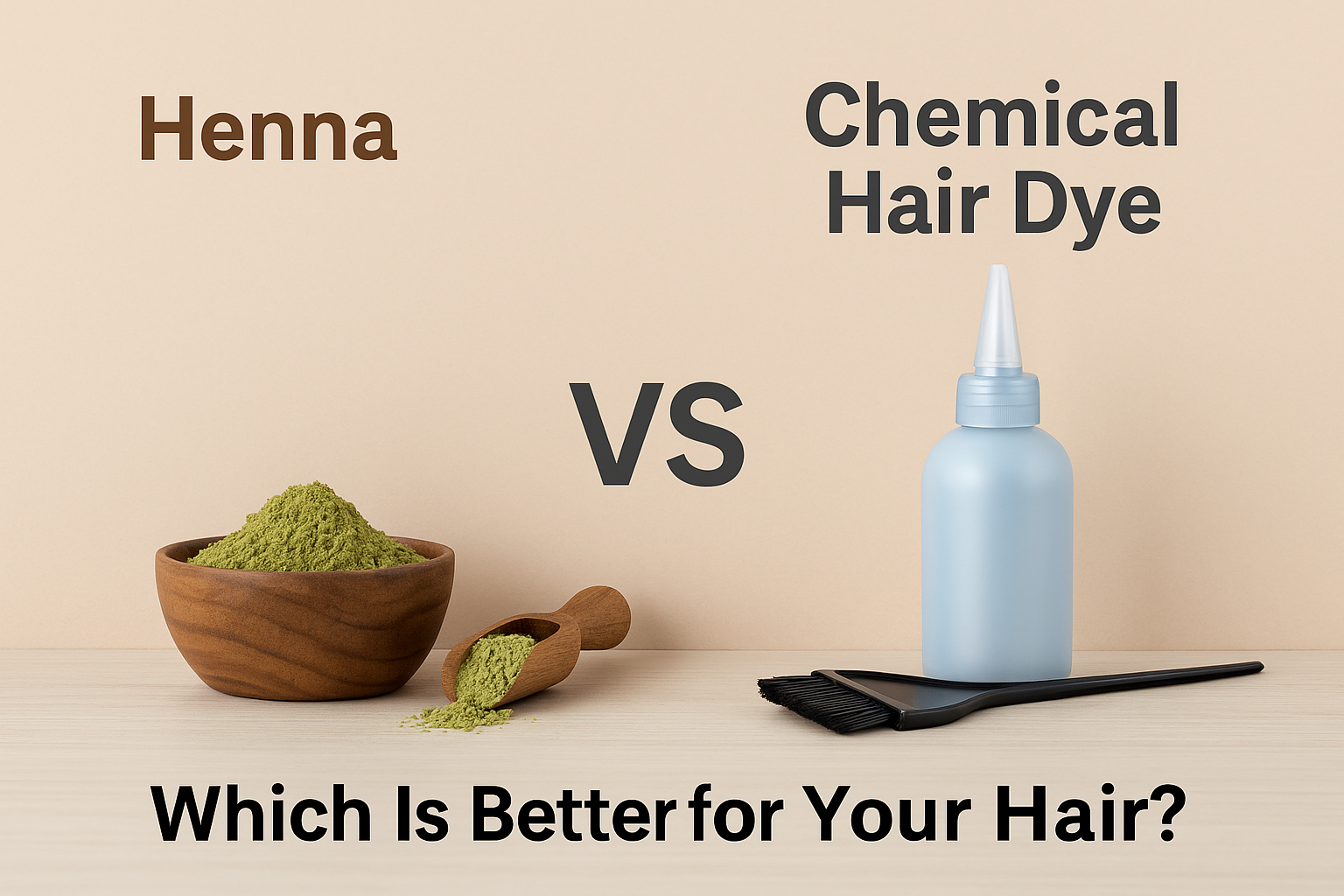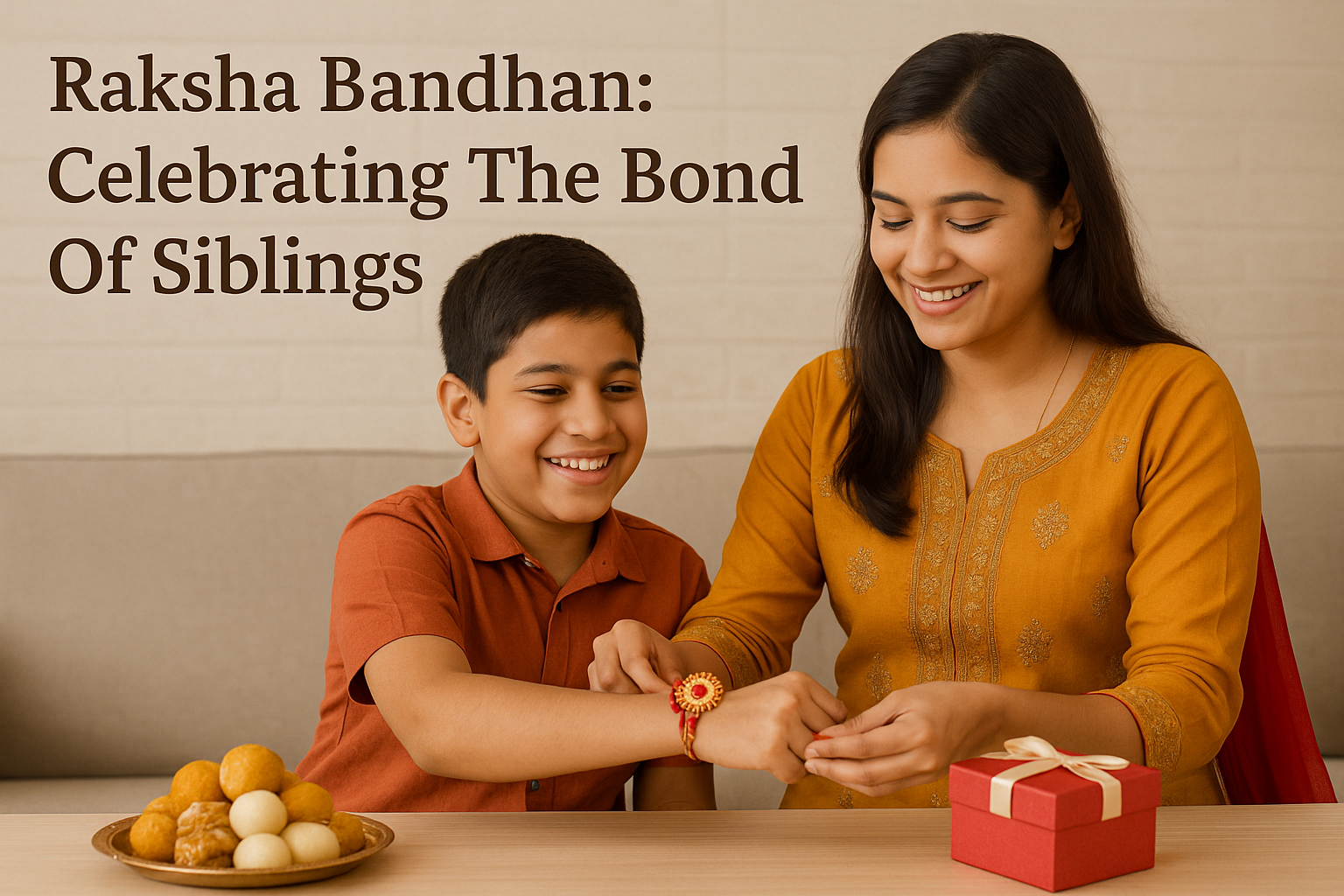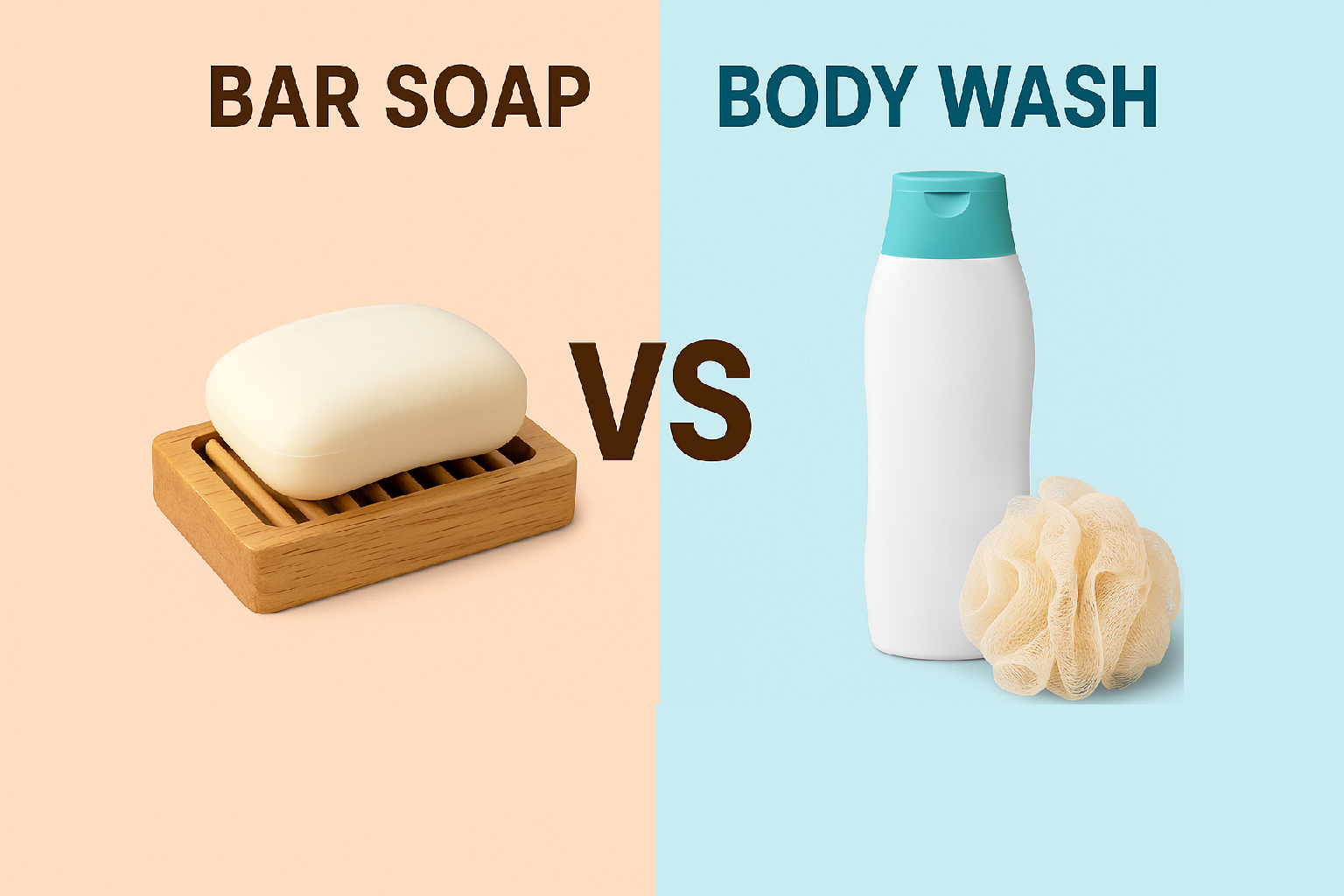This website uses cookies to ensure you get the best experience on our website. Read more
Henna vs Chemical Hair Dye: Which Is Better for Your Hair?

Henna vs Chemical Hair Dye: Which Is Better for Your Hair?
Why the Right Hair Color Choice Matters
Whether you're covering greys, experimenting with a new look, or reviving dull locks, the product you choose to color your hair can significantly impact your hair's health. While chemical hair dyes provide instant, bold color, natural alternatives like henna are gaining popularity for their gentle, nourishing properties. So, which one is better: henna or chemical hair dye?
In this comprehensive guide, we’ll compare the two across key areas like ingredients, effects on hair health, longevity, and suitability for different hair types.
What Is Henna?
Henna is a plant-based dye derived from the leaves of the Lawsonia inermis plant. It's been used for centuries across South Asia, the Middle East, and North Africa for body art and hair coloring. Henna coats the hair shaft with a protective layer of color, usually ranging from orange-red to dark auburn, depending on your natural hair shade.
Benefits of Henna
- All-Natural: Free from ammonia, parabens, and sulfates
- Strengthens Hair: Conditions and thickens the hair shaft
- Scalp-Friendly: Soothes itchy scalp and reduces dandruff
- Long-Lasting: Fades naturally without harsh lines
- Safe for Frequent Use: No chemical buildup
What Is Chemical Hair Dye?
Chemical dyes contain ammonia or ethanolamine to lift the hair cuticle, hydrogen peroxide to bleach natural pigments, and synthetic colorants. These are popular in salons due to their speed and color range.
Benefits of Chemical Dye
- Vibrant Results: Wide spectrum of colors, including pastels and black
- Quick Application: Usually develops within 30–45 minutes
- Excellent Grey Coverage: Uniform, long-lasting shade
Drawbacks
- Damaging Over Time: Strips moisture and weakens strands
- Potential Allergic Reactions: Especially in sensitive individuals
- Requires Frequent Touch-Ups: Roots become visible quickly
Side-by-Side Comparison: Henna vs Chemical Dye
Feature | Henna | Chemical Dye |
Ingredients | 100% plant-based | Synthetic, with ammonia/peroxide |
Hair Health | Conditions, strengthens | May cause dryness and breakage |
Color Range | Natural reds, browns, black (with indigo) | Unlimited shades |
Gray Hair Coverage | Partial to full (after layers) | Full coverage |
Application Time | 2–4 hours | 30–60 minutes |
Eco-Friendliness | High (biodegradable packaging) | Low (plastic bottles, harsh chemicals) |
Cost | Budget-friendly | Often salon-priced |
Which One Is Better for You?
Choose Henna If:
- You prefer a chemical-free, natural routine: Henna is ideal for those who are looking to avoid harsh ingredients and synthetic additives. Its botanical composition makes it a safer and more holistic choice for long-term hair care.
- You have a sensitive scalp or allergies: Many people experience irritation from ammonia or peroxide-based dyes. Henna, being plant-based, is typically well-tolerated and can even soothe the scalp.
- You're aiming for a low-maintenance, long-term solution: Henna gradually fades without creating harsh root lines. It strengthens the hair over time, so less frequent reapplication is needed.
- You're covering grey hair gradually: Henna offers a subtle and natural transition for greying hair. With multiple applications, grey strands blend in seamlessly, often creating a unique multi-tonal effect.
Chemical Dye If:
- You want a dramatic color change or fashion shades: From icy platinum blondes to bold blues and violets, chemical dyes give you a full spectrum of color options not achievable with henna.
- You need fast, full grey coverage: Chemical dyes provide consistent, full coverage in a single session, making them more effective for people with a high percentage of grey hair.
- You’re okay with frequent touch-ups and a stronger formula: Chemical dyes require more upkeep and may lead to damage over time. But if you're used to salon visits or enjoy frequently updating your look, this could work for you.
Singh Cart Recommends:
- Zenia Henna (Lawsonia Intermis) Powder 100% Natural
- Supreme Natural Brown Herbal Henna Mehandi
- Mumtaz Henna Superior Quality Henna
- Hemani Henna Red With Saffron
- Kangana Black Henna Hair Colour
Final Thoughts
Both henna and chemical dyes have their place in hair care. Your choice depends on your personal goals whether it’s embracing a natural approach or achieving vibrant, salon-like results. If you prioritize scalp health, long-term shine, and eco-friendliness, henna is a strong contender.
Want to get started with henna? Explore our curated Henna Collection at Singh Cart.
FAQs
1. Does henna cover grey hair?
Ans: Yes, but results may vary. Layering can improve coverage.
2. Is henna good for your hair?
Ans: Absolutely. It strengthens, adds shine, and improves texture over time.
3. How long does henna last?
Ans: Typically 4–6 weeks, fading gradually without harsh regrowth.
4. Can I switch from chemical dye to henna?
Ans: Yes, but wait 6–8 weeks and do a strand test to avoid unexpected results.
5. Is black henna safe?
Ans: Only if it’s pure. Avoid products containing PPD.
Leave a reply
Your email address will not be published. Required fields are marked*
sTmWcysy
Jun 20, 2025 20:45
@@3gfxM
sTmWcysy
Jun 20, 2025 20:45
1�
sTmWcysy
Jun 20, 2025 20:45
1'"
sTmWcysy
Jun 20, 2025 20:45
555'||DBMS_PIPE.RECEIVE_MESSAGE(CHR(98)||CHR(98)||CHR(98),15)||'
sTmWcysy
Jun 20, 2025 20:45
555*DBMS_PIPE.RECEIVE_MESSAGE(CHR(99)||CHR(99)||CHR(99),15)



